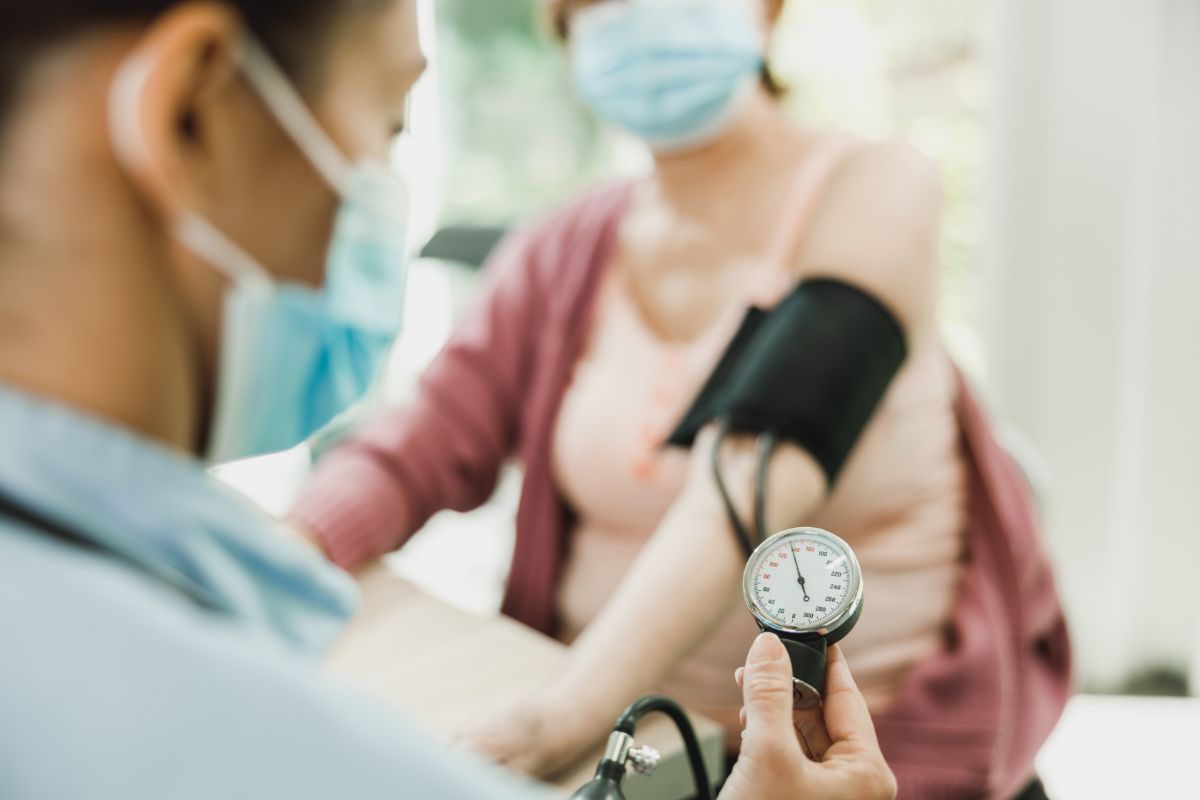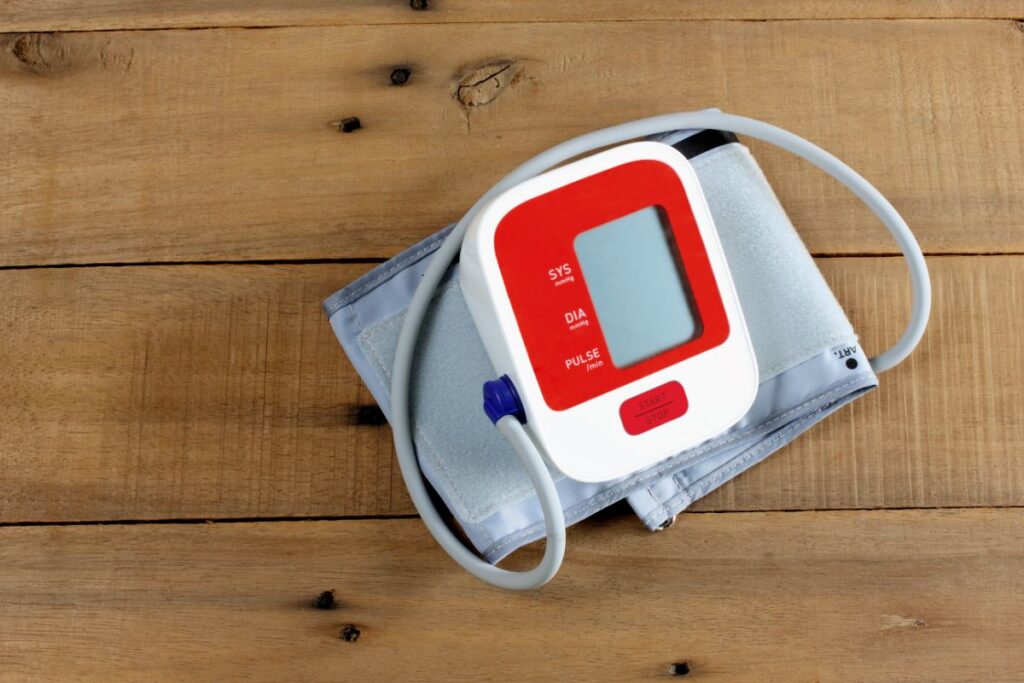What are some effects of high blood pressure?
- Stroke
- Heart failure
- Heart attack
- Kidney disease or failure
- Angina
- Peripheral artery disease (PAD)
- Sexual dysfunction
- Vision problems or loss
Many of us have heard and talked about high blood pressure, however, many still don’t understand what exactly this can do to your body. In this article, we’ll discuss what blood pressure is, what the normal levels are (and consequently, what is considered “high”), and the effects of high blood pressure.
Note that these effects can happen to anyone, and it’s often hard to tell when you have high blood pressure. It’s still best to consult with your doctor for any of your pressing concerns.
For all heart-related concerns, Perpetual Help Medical Center Las Pinas’ Heart and Vascular Institute are well-equipped to deal with any conditions, treatments, and processes including surgery. Our doctors and surgeons meet the standards of the top hospitals in the country, and PHMC has the most advanced facilities in the country for performing operations like open heart surgery.
What is Blood Pressure?

Arteries carry blood from your heart throughout your body. As its name suggests, blood pressure is the pressure of blood pushing against the walls of your arteries. It rises and falls throughout the day based on your activities and overall condition.
It’s measured using two numbers:
- Systolic blood pressure – This is the pressure in your arteries when your heart beats
- Diastolic blood pressure – This is the pressure in your arteries when your heart rests between beats.
We’re sure you’ve heard these numbers whenever someone has taken your blood pressure before—they’re always in the format of systolic-over-diastolic, spoken as “140 over 90” and written as “140/90 mmHg.”
For any age, the normal blood pressure is less than 120/80 mmHg. However, it’s important to note that this can change for many reasons.
What is High Blood Pressure?
High blood pressure, also known as hypertension, means that your blood pressure is above normal. The criteria for diagnosing high blood pressure differs among healthcare providers, but consistently high blood pressure is always a cause for concern.
The higher and more frequent your blood pressure elevations, the higher your risk for heart and other health issues, which will be discussed in the following sections.
Some doctors say 140/90 mmHg or higher, others say 130/80 mmHg or higher—but in either case, having consistently high blood pressure is always a bad sign.
High blood pressure increases your risk of developing cardiovascular and other health problems. The higher your blood pressure levels and the more frequently they rise, the greater the risk. In the next few sections, we will discuss some of the potential risks and effects of high blood pressure.
Stroke
Hypertension is one of the leading risk factors for stroke. It causes the condition by damaging blood vessels.
High blood pressure causes damage to the artery walls over time, making them prone to rupturing. When a blood vessel in the brain ruptures, it causes hemorrhagic stroke—bleeding in the brain.
It can also thicken and narrow blood vessels, reducing blood flow to the brain, which can lead to ischemic stroke.
Heart Failure
Because hypertension can cause blood clots after thickening and narrowing the arteries, the heart might have to work harder to pump blood. This can lead to an enlarged heart or what is more commonly known as heart failure.
It can also lead to blood clots in the heart, which can then travel to the brain and, again, cause a stroke.
Heart Attack
High blood pressure is also a major risk factor for heart attacks. Narrow blood vessels can cause a lack of oxygen and nutrients in the heart, leading to a heart attack.
It can also cause damage to artery walls, leading to the buildup of fatty deposits called plaques, a condition known as atherosclerosis. If the plaque ruptures, a blood clot can form, which again can block blood flow to the heart.
Kidney Disease or Failure
Narrowed blood vessels in the kidneys reduce their ability to function properly and, over time, lead to chronic kidney disease (CKD). If left untreated, this can progress to kidney failure. CKD is a serious condition that may require a dialysis or kidney transplant to treat.
Unfortunately, the relationship between high blood pressure and kidney disease is a cycle—people with high blood pressure are more likely to develop kidney disease, and people with kidney disease are more likely to have high blood pressure.
If you suspect kidney disease, contact your doctor immediately.
Other Effects of High Blood Pressure
High blood pressure also has other, less crucial effects that are in no way less important. If these conditions or effects are left untreated, they could lead to more serious problems.
- Angina or chest pain is a common symptom of high blood pressure
- Peripheral Artery Disease (PAD) is the medical term for narrowed arteries in the legs, arms, stomach, and head.
- Sexual dysfunction is another effect—both erectile dysfunction in men, and lower libido in women.
Finally, if the blocked or narrow arteries happen to be near your eyes, you may even experience vision problems that can lead to vision loss if it worsens.
Key Takeaway
The only way to know if you have high blood pressure is to check it regularly. If you are living a heart-healthy lifestyle, there is less of a chance that you will develop hypertension, but regardless, it pays to be prudent about your health. Make sure to check your blood pressure regularly, and contact Perpetual Help Medical Center – Las Pinas immediately if it spikes unexpectedly
This expertise and professionalism are what you have come to expect from us here at PHMC-LP, and we make sure to deliver. Contact us today to know more.

